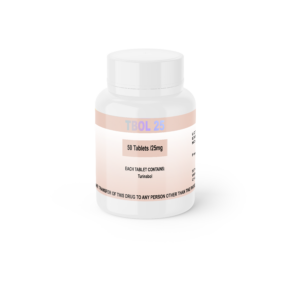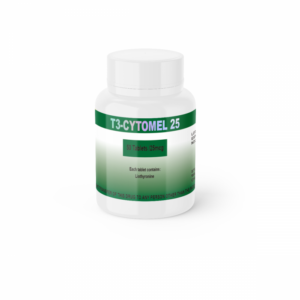What are Clomid tablets?
Clomid, also known as Clomiphene citrate, is a pill that is often used to treat specific types of infertility in women. Primary care doctors or OB-GYNs often prescribe these fertility treatment medications to women who find it hard to get pregnant, before consulting a fertility treatment specialist for fertility medications or getting more specialized care. They are even prescribed by some reproductive specialists keeping in mind the privacy terms.
They are unlike other strong fertility drugs, which demand an injection. However, this article, stresses the benefits of Clomid 25 as a prescription drug and is to be used only under the prescription of a registered medical practitioner.
Clomiphene citrate is usually a white to pale yellow, crystalline, and odourless powder. It is chemically designated as 2-[p-(2-chloro-1,2-diphenylvinyl)phenoxy] triethylamine citrate (1:1). It is usually prescribed for women suffering from ovulatory dysfunctions and desiring pregnancy.
Who should use Clomid?
Clomid medication is usually used for fertility treatments. If a woman has irregular menstrual cycles or anovulatory cycles (menstruation without ovulation), Clomid is the first treatment of choice. They are usually prescribed to women suffering from ovarian dysfunctions like polycystic ovary syndrome (PCOS) – which is a condition that causes irregular, dysfunctional or absence of ovulation.
Clomid is also used during IUI (Intra Uterine Insemination) and IVF (In Vitro Fertilization). In IVF, Clomid may be used along with other ovulating medications, to trigger a more powerful response. It may also be used in other cases of unexplained infertility.
However, in this article, we will also give insights as to why Clomid may not be suitable for everyone and people with certain conditions should not be prescribed with Clomid. They are not recommended for women with pituitary or ovarian failure. Clomid is strictly not recommended if you:
- Are pregnant.
- Have a blocked fallopian tube, fibroids, or other uterine disorders.
- Have a thin endometrial lining.
- Have any ovarian cysts (except PCOS).
- Have abnormal vaginal bleeding.
- Have primary ovarian insufficiency (not able to produce eggs)
- Have a history of cancer.
- Have reacted badly to Clomid in history.
- Have abnormal liver functioning.
Using Clomid despite having the above conditions may lead to other serious complications. So, clearly discuss with your doctor and follow all his prescriptions seriously.
How does Clomid work?
As mentioned before in the article, Clomid (Clomiphene citrate) is used to treat certain cases of infertility in women. This medication puts your body into a fake assumption that your estrogen levels are very much low than they are. Due to the extremely low estrogen levels, your body thinks that no egg follicles are growing and in response, it releases a hormone that triggers the pituitary gland to boost the secretion of the Follicle Stimulating Hormone (FSH), gonadotropin-releasing hormone and the Luteinizing Hormone (LH).
Higher levels of FSH stimulate your ovary to develop an egg or multiple eggs, that will be released during ovulation, and a higher LH level stimulates the ovulation process.
Benefits of Clomid
The common benefits of Clomid include :
- When compared with other treatment procedures, Clomid is a highly cost-effective treatment for infertility.
- It is an oral medication, making it easy to administer.
- It can be prescribed by your general physician or your OB-GYN, instead of going to a reproductive specialist.
- The side effects are pretty low and the drug is less dangerous.
Preferred Dosage
Clomid is commonly available as a 50 mg pill and is usually taken at the beginning of a woman’s menstrual cycle. Doctors usually prescribe one, two, three or even four pills to take at the same time of the day, depending upon the severity of the condition. It is common to start with a lower dose and increase the dosage gradually in response to your body’s reaction towards the drug.
Long-term usage of this medication is usually not recommended, and most doctors don’t recommend it beyond three to six cycles. This is because the increased usage of this drug decreases your chances of pregnancy.
You may be scheduled for a regular blood sample analysis to measure your hormonal levels or a transvaginal ultrasound to look at your ovarian follicles. This may help the doctor to determine your dosage for the next cycle. This may also help the doctor to suggest the best time to have intercourse.
You will most likely ovulate within 5 to 10 days of taking Clomid medicine. If you do not get pregnant after 3 treatment cycles, your doctor may stop your procedure and evaluate your infertility further.
Overdosing
It is generally advised to stick strictly to the prescribed schedule and to never take an unnecessary extra dose or to skip a dose of the medicine. If you forget to intake a dose, just consult your doctor for his advice diagnosis or treatment but never get an extra dose.
The effects of an overdose may include – nausea, vomiting, abdominal/pelvic pain, and vision problems like blurred vision.
If you find a person who has overdosed and is experiencing some serious symptoms such as passing out or having trouble breathing, immediately call 911 or contact the nearest health information control centre right away for advice diagnosis or treatment.
Precautions
Before taking Clomid or clomiphene, tell your doctor if you are allergic to any drugs. This drug contains active ingredients and may induce allergic reactions or other severe problems. Also, discuss your medical history with your physician before undertaking this drug, especially ovarian cysts, abnormal vaginal bleeding, liver diseases, uterine disorders, thyroid/adrenal gland dysfunctions, brain tumour or increased fat levels in the blood.
This drug may cause blurry vision, dizziness, and other visual impairments. Alcohol, marijuana, and similar drugs may cause adverse effects and hence people under this medicine are advised not to consume the same. Do not drive, use any hazardous instruments that require a sharp vision when you are under this medicine.
Clomid may result in multiple pregnancies (the chance of having a twin birth is more). Consult your doctor for additional details.
If you find yourself pregnant during the course of the medicine, kindly stop it immediately as it may cause some adverse side effects. This medicine is not to be used during pregnancy. Tell your doctor or fertility specialist right away if you think that you may be pregnant.
Drug Interactions
Clomid may interact with other drugs that you intake and can cause adverse side effects. So have a detailed discussion on your medical history, other drugs that you take with your general physician before taking this medicine.
DO NOT start, stop, or modify any of your drugs without consulting with your physician. Clomid is a prescription drug and should not be undertaken without the prescription of a registered medical practitioner.
Risks and Side Effects
While this medicine is pretty safe when compared to other similar medicines, there are certain possible risks or side effects that you need to be aware of:
- Headaches
- Bloating
- Hot Flashes (sudden feeling of warmth on the upper part of the body)
- Nausea and vomiting
- Mood changes or swings
- Breast tenderness
- Breast discomfort
- Visual impairments like blurred vision and double vision
- Slight chance of endometrial cancer
- Slight abdominal discomfort
- Vaginal dryness
- Anxiety and insomnia
- Abnormal uterine bleeding
- Other serious side effects may include:Rapid weight gain (3-5 kgs in 3-5 days)
- Severe abdominal pain
- Trouble with urination
- Dizziness
- Shortness of breath
- Rapid heartbeat
- Ovarian hyperstimulation Syndrome (Enlarged and tender ovaries)
A study revealed that Clomid can enhance the risk of uterine cancer. However, more studies were conducted, and it was discovered that there is no increase in cancer risk after using Clomid.
What if you don’t get pregnant?
If you don’t get pregnant after three to six cycles of this medicine (or how long your doctor recommends), you may have to visit a fertility specialist or a reproductivity specialist for medical advice diagnosis and to undertake more serious treatment methods.
Possibility of multiple births
Usually, Clomid may result in a higher chance of multiple pregnancies than a normal rate. It causes multiple pregnancies for one in ten people. Triplets and Quadruplets are really rare, with a possibility of around one per cent.
NOTE: DO NOT SHARE THIS MEDICATION WITH OTHERS. The usage and dosage differ from person to person, and it requires a constant medical examination, medical help and medical advice diagnosis.





Tammy –
Clomid such a great product. Shipping was fast